- Vitamin B Market By Application (USD Billion, 2019-2035)
- Dietary Supplements
- Food Beverages
- Pharmaceuticals
- Animal Feed
- Vitamin B Market By Type (USD Billion, 2019-2035)
- Vitamin B1
- Vitamin B2
- Vitamin B3
- Vitamin B5
- Vitamin B12
- Vitamin B Market By Form (USD Billion, 2019-2035)
- Tablets
- Capsules
- Powders
- Liquids
- Vitamin B Market By Distribution Channel (USD Billion, 2019-2035)
- Online Retail
- Pharmacies
- Health Stores
- Supermarkets
- Vitamin B Market By Regional (USD Billion, 2019-2035)
- North America
- Europe
- South America
- Asia Pacific
- Middle East and Africa
North America Outlook (USD Billion, 2019-2035)
- North America Vitamin B Market by Application Type
- Dietary Supplements
- Food Beverages
- Pharmaceuticals
- Animal Feed
- North America Vitamin B Market by Type
- Vitamin B1
- Vitamin B2
- Vitamin B3
- Vitamin B5
- Vitamin B12
- North America Vitamin B Market by Form Type
- Tablets
- Capsules
- Powders
- Liquids
- North America Vitamin B Market by Distribution Channel Type
- Online Retail
- Pharmacies
- Health Stores
- Supermarkets
- North America Vitamin B Market by Regional Type
- US Outlook (USD Billion, 2019-2035)
- US Vitamin B Market by Application Type
- Dietary Supplements
- Food Beverages
- Pharmaceuticals
- Animal Feed
- US Vitamin B Market by Type
- Vitamin B1
- Vitamin B2
- Vitamin B3
- Vitamin B5
- Vitamin B12
- US Vitamin B Market by Form Type
- Tablets
- Capsules
- Powders
- Liquids
- US Vitamin B Market by Distribution Channel Type
- Online Retail
- Pharmacies
- Health Stores
- Supermarkets
- CANADA Outlook (USD Billion, 2019-2035)
- CANADA Vitamin B Market by Application Type
- Dietary Supplements
- Food Beverages
- Pharmaceuticals
- Animal Feed
- CANADA Vitamin B Market by Type
- Vitamin B1
- Vitamin B2
- Vitamin B3
- Vitamin B5
- Vitamin B12
- CANADA Vitamin B Market by Form Type
- Tablets
- Capsules
- Powders
- Liquids
- CANADA Vitamin B Market by Distribution Channel Type
- Online Retail
- Pharmacies
- Health Stores
- Supermarkets
Europe Outlook (USD Billion, 2019-2035)
- Europe Vitamin B Market by Application Type
- Dietary Supplements
- Food Beverages
- Pharmaceuticals
- Animal Feed
- Europe Vitamin B Market by Type
- Vitamin B1
- Vitamin B2
- Vitamin B3
- Vitamin B5
- Vitamin B12
- Europe Vitamin B Market by Form Type
- Tablets
- Capsules
- Powders
- Liquids
- Europe Vitamin B Market by Distribution Channel Type
- Online Retail
- Pharmacies
- Health Stores
- Supermarkets
- Europe Vitamin B Market by Regional Type
- Germany
- UK
- France
- Russia
- Italy
- Spain
- Rest of Europe
- GERMANY Outlook (USD Billion, 2019-2035)
- GERMANY Vitamin B Market by Application Type
- Dietary Supplements
- Food Beverages
- Pharmaceuticals
- Animal Feed
- GERMANY Vitamin B Market by Type
- Vitamin B1
- Vitamin B2
- Vitamin B3
- Vitamin B5
- Vitamin B12
- GERMANY Vitamin B Market by Form Type
- Tablets
- Capsules
- Powders
- Liquids
- GERMANY Vitamin B Market by Distribution Channel Type
- Online Retail
- Pharmacies
- Health Stores
- Supermarkets
- UK Outlook (USD Billion, 2019-2035)
- UK Vitamin B Market by Application Type
- Dietary Supplements
- Food Beverages
- Pharmaceuticals
- Animal Feed
- UK Vitamin B Market by Type
- Vitamin B1
- Vitamin B2
- Vitamin B3
- Vitamin B5
- Vitamin B12
- UK Vitamin B Market by Form Type
- Tablets
- Capsules
- Powders
- Liquids
- UK Vitamin B Market by Distribution Channel Type
- Online Retail
- Pharmacies
- Health Stores
- Supermarkets
- FRANCE Outlook (USD Billion, 2019-2035)
- FRANCE Vitamin B Market by Application Type
- Dietary Supplements
- Food Beverages
- Pharmaceuticals
- Animal Feed
- FRANCE Vitamin B Market by Type
- Vitamin B1
- Vitamin B2
- Vitamin B3
- Vitamin B5
- Vitamin B12
- FRANCE Vitamin B Market by Form Type
- Tablets
- Capsules
- Powders
- Liquids
- FRANCE Vitamin B Market by Distribution Channel Type
- Online Retail
- Pharmacies
- Health Stores
- Supermarkets
- RUSSIA Outlook (USD Billion, 2019-2035)
- RUSSIA Vitamin B Market by Application Type
- Dietary Supplements
- Food Beverages
- Pharmaceuticals
- Animal Feed
- RUSSIA Vitamin B Market by Type
- Vitamin B1
- Vitamin B2
- Vitamin B3
- Vitamin B5
- Vitamin B12
- RUSSIA Vitamin B Market by Form Type
- Tablets
- Capsules
- Powders
- Liquids
- RUSSIA Vitamin B Market by Distribution Channel Type
- Online Retail
- Pharmacies
- Health Stores
- Supermarkets
- ITALY Outlook (USD Billion, 2019-2035)
- ITALY Vitamin B Market by Application Type
- Dietary Supplements
- Food Beverages
- Pharmaceuticals
- Animal Feed
- ITALY Vitamin B Market by Type
- Vitamin B1
- Vitamin B2
- Vitamin B3
- Vitamin B5
- Vitamin B12
- ITALY Vitamin B Market by Form Type
- Tablets
- Capsules
- Powders
- Liquids
- ITALY Vitamin B Market by Distribution Channel Type
- Online Retail
- Pharmacies
- Health Stores
- Supermarkets
- SPAIN Outlook (USD Billion, 2019-2035)
- SPAIN Vitamin B Market by Application Type
- Dietary Supplements
- Food Beverages
- Pharmaceuticals
- Animal Feed
- SPAIN Vitamin B Market by Type
- Vitamin B1
- Vitamin B2
- Vitamin B3
- Vitamin B5
- Vitamin B12
- SPAIN Vitamin B Market by Form Type
- Tablets
- Capsules
- Powders
- Liquids
- SPAIN Vitamin B Market by Distribution Channel Type
- Online Retail
- Pharmacies
- Health Stores
- Supermarkets
- REST OF EUROPE Outlook (USD Billion, 2019-2035)
- REST OF EUROPE Vitamin B Market by Application Type
- Dietary Supplements
- Food Beverages
- Pharmaceuticals
- Animal Feed
- REST OF EUROPE Vitamin B Market by Type
- Vitamin B1
- Vitamin B2
- Vitamin B3
- Vitamin B5
- Vitamin B12
- REST OF EUROPE Vitamin B Market by Form Type
- Tablets
- Capsules
- Powders
- Liquids
- REST OF EUROPE Vitamin B Market by Distribution Channel Type
- Online Retail
- Pharmacies
- Health Stores
- Supermarkets
APAC Outlook (USD Billion, 2019-2035)
- APAC Vitamin B Market by Application Type
- Dietary Supplements
- Food Beverages
- Pharmaceuticals
- Animal Feed
- APAC Vitamin B Market by Type
- Vitamin B1
- Vitamin B2
- Vitamin B3
- Vitamin B5
- Vitamin B12
- APAC Vitamin B Market by Form Type
- Tablets
- Capsules
- Powders
- Liquids
- APAC Vitamin B Market by Distribution Channel Type
- Online Retail
- Pharmacies
- Health Stores
- Supermarkets
- APAC Vitamin B Market by Regional Type
- China
- India
- Japan
- South Korea
- Malaysia
- Thailand
- Indonesia
- Rest of APAC
- CHINA Outlook (USD Billion, 2019-2035)
- CHINA Vitamin B Market by Application Type
- Dietary Supplements
- Food Beverages
- Pharmaceuticals
- Animal Feed
- CHINA Vitamin B Market by Type
- Vitamin B1
- Vitamin B2
- Vitamin B3
- Vitamin B5
- Vitamin B12
- CHINA Vitamin B Market by Form Type
- Tablets
- Capsules
- Powders
- Liquids
- CHINA Vitamin B Market by Distribution Channel Type
- Online Retail
- Pharmacies
- Health Stores
- Supermarkets
- INDIA Outlook (USD Billion, 2019-2035)
- INDIA Vitamin B Market by Application Type
- Dietary Supplements
- Food Beverages
- Pharmaceuticals
- Animal Feed
- INDIA Vitamin B Market by Type
- Vitamin B1
- Vitamin B2
- Vitamin B3
- Vitamin B5
- Vitamin B12
- INDIA Vitamin B Market by Form Type
- Tablets
- Capsules
- Powders
- Liquids
- INDIA Vitamin B Market by Distribution Channel Type
- Online Retail
- Pharmacies
- Health Stores
- Supermarkets
- JAPAN Outlook (USD Billion, 2019-2035)
- JAPAN Vitamin B Market by Application Type
- Dietary Supplements
- Food Beverages
- Pharmaceuticals
- Animal Feed
- JAPAN Vitamin B Market by Type
- Vitamin B1
- Vitamin B2
- Vitamin B3
- Vitamin B5
- Vitamin B12
- JAPAN Vitamin B Market by Form Type
- Tablets
- Capsules
- Powders
- Liquids
- JAPAN Vitamin B Market by Distribution Channel Type
- Online Retail
- Pharmacies
- Health Stores
- Supermarkets
- SOUTH KOREA Outlook (USD Billion, 2019-2035)
- SOUTH KOREA Vitamin B Market by Application Type
- Dietary Supplements
- Food Beverages
- Pharmaceuticals
- Animal Feed
- SOUTH KOREA Vitamin B Market by Type
- Vitamin B1
- Vitamin B2
- Vitamin B3
- Vitamin B5
- Vitamin B12
- SOUTH KOREA Vitamin B Market by Form Type
- Tablets
- Capsules
- Powders
- Liquids
- SOUTH KOREA Vitamin B Market by Distribution Channel Type
- Online Retail
- Pharmacies
- Health Stores
- Supermarkets
- MALAYSIA Outlook (USD Billion, 2019-2035)
- MALAYSIA Vitamin B Market by Application Type
- Dietary Supplements
- Food Beverages
- Pharmaceuticals
- Animal Feed
- MALAYSIA Vitamin B Market by Type
- Vitamin B1
- Vitamin B2
- Vitamin B3
- Vitamin B5
- Vitamin B12
- MALAYSIA Vitamin B Market by Form Type
- Tablets
- Capsules
- Powders
- Liquids
- MALAYSIA Vitamin B Market by Distribution Channel Type
- Online Retail
- Pharmacies
- Health Stores
- Supermarkets
- THAILAND Outlook (USD Billion, 2019-2035)
- THAILAND Vitamin B Market by Application Type
- Dietary Supplements
- Food Beverages
- Pharmaceuticals
- Animal Feed
- THAILAND Vitamin B Market by Type
- Vitamin B1
- Vitamin B2
- Vitamin B3
- Vitamin B5
- Vitamin B12
- THAILAND Vitamin B Market by Form Type
- Tablets
- Capsules
- Powders
- Liquids
- THAILAND Vitamin B Market by Distribution Channel Type
- Online Retail
- Pharmacies
- Health Stores
- Supermarkets
- INDONESIA Outlook (USD Billion, 2019-2035)
- INDONESIA Vitamin B Market by Application Type
- Dietary Supplements
- Food Beverages
- Pharmaceuticals
- Animal Feed
- INDONESIA Vitamin B Market by Type
- Vitamin B1
- Vitamin B2
- Vitamin B3
- Vitamin B5
- Vitamin B12
- INDONESIA Vitamin B Market by Form Type
- Tablets
- Capsules
- Powders
- Liquids
- INDONESIA Vitamin B Market by Distribution Channel Type
- Online Retail
- Pharmacies
- Health Stores
- Supermarkets
- REST OF APAC Outlook (USD Billion, 2019-2035)
- REST OF APAC Vitamin B Market by Application Type
- Dietary Supplements
- Food Beverages
- Pharmaceuticals
- Animal Feed
- REST OF APAC Vitamin B Market by Type
- Vitamin B1
- Vitamin B2
- Vitamin B3
- Vitamin B5
- Vitamin B12
- REST OF APAC Vitamin B Market by Form Type
- Tablets
- Capsules
- Powders
- Liquids
- REST OF APAC Vitamin B Market by Distribution Channel Type
- Online Retail
- Pharmacies
- Health Stores
- Supermarkets
South America Outlook (USD Billion, 2019-2035)
- South America Vitamin B Market by Application Type
- Dietary Supplements
- Food Beverages
- Pharmaceuticals
- Animal Feed
- South America Vitamin B Market by Type
- Vitamin B1
- Vitamin B2
- Vitamin B3
- Vitamin B5
- Vitamin B12
- South America Vitamin B Market by Form Type
- Tablets
- Capsules
- Powders
- Liquids
- South America Vitamin B Market by Distribution Channel Type
- Online Retail
- Pharmacies
- Health Stores
- Supermarkets
- South America Vitamin B Market by Regional Type
- Brazil
- Mexico
- Argentina
- Rest of South America
- BRAZIL Outlook (USD Billion, 2019-2035)
- BRAZIL Vitamin B Market by Application Type
- Dietary Supplements
- Food Beverages
- Pharmaceuticals
- Animal Feed
- BRAZIL Vitamin B Market by Type
- Vitamin B1
- Vitamin B2
- Vitamin B3
- Vitamin B5
- Vitamin B12
- BRAZIL Vitamin B Market by Form Type
- Tablets
- Capsules
- Powders
- Liquids
- BRAZIL Vitamin B Market by Distribution Channel Type
- Online Retail
- Pharmacies
- Health Stores
- Supermarkets
- MEXICO Outlook (USD Billion, 2019-2035)
- MEXICO Vitamin B Market by Application Type
- Dietary Supplements
- Food Beverages
- Pharmaceuticals
- Animal Feed
- MEXICO Vitamin B Market by Type
- Vitamin B1
- Vitamin B2
- Vitamin B3
- Vitamin B5
- Vitamin B12
- MEXICO Vitamin B Market by Form Type
- Tablets
- Capsules
- Powders
- Liquids
- MEXICO Vitamin B Market by Distribution Channel Type
- Online Retail
- Pharmacies
- Health Stores
- Supermarkets
- ARGENTINA Outlook (USD Billion, 2019-2035)
- ARGENTINA Vitamin B Market by Application Type
- Dietary Supplements
- Food Beverages
- Pharmaceuticals
- Animal Feed
- ARGENTINA Vitamin B Market by Type
- Vitamin B1
- Vitamin B2
- Vitamin B3
- Vitamin B5
- Vitamin B12
- ARGENTINA Vitamin B Market by Form Type
- Tablets
- Capsules
- Powders
- Liquids
- ARGENTINA Vitamin B Market by Distribution Channel Type
- Online Retail
- Pharmacies
- Health Stores
- Supermarkets
- REST OF SOUTH AMERICA Outlook (USD Billion, 2019-2035)
- REST OF SOUTH AMERICA Vitamin B Market by Application Type
- Dietary Supplements
- Food Beverages
- Pharmaceuticals
- Animal Feed
- REST OF SOUTH AMERICA Vitamin B Market by Type
- Vitamin B1
- Vitamin B2
- Vitamin B3
- Vitamin B5
- Vitamin B12
- REST OF SOUTH AMERICA Vitamin B Market by Form Type
- Tablets
- Capsules
- Powders
- Liquids
- REST OF SOUTH AMERICA Vitamin B Market by Distribution Channel Type
- Online Retail
- Pharmacies
- Health Stores
- Supermarkets
MEA Outlook (USD Billion, 2019-2035)
MEA Vitamin B Market by Application Type
- Dietary Supplements
- Food Beverages
- Pharmaceuticals
- Animal Feed
MEA Vitamin B Market by Type
- Vitamin B1
- Vitamin B2
- Vitamin B3
- Vitamin B5
- Vitamin B12
MEA Vitamin B Market by Form Type
- Tablets
- Capsules
- Powders
- Liquids
MEA Vitamin B Market by Distribution Channel Type
- Online Retail
- Pharmacies
- Health Stores
- Supermarkets
MEA Vitamin B Market by Regional Type
- GCC Countries
- South Africa
- Rest of MEA
GCC COUNTRIES Outlook (USD Billion, 2019-2035)
GCC COUNTRIES Vitamin B Market by Application Type
- Dietary Supplements
- Food Beverages
- Pharmaceuticals
- Animal Feed
GCC COUNTRIES Vitamin B Market by Type
- Vitamin B1
- Vitamin B2
- Vitamin B3
- Vitamin B5
- Vitamin B12
GCC COUNTRIES Vitamin B Market by Form Type
- Tablets
- Capsules
- Powders
- Liquids
GCC COUNTRIES Vitamin B Market by Distribution Channel Type
- Online Retail
- Pharmacies
- Health Stores
- Supermarkets
SOUTH AFRICA Outlook (USD Billion, 2019-2035)
SOUTH AFRICA Vitamin B Market by Application Type
- Dietary Supplements
- Food Beverages
- Pharmaceuticals
- Animal Feed
SOUTH AFRICA Vitamin B Market by Type
- Vitamin B1
- Vitamin B2
- Vitamin B3
- Vitamin B5
- Vitamin B12
SOUTH AFRICA Vitamin B Market by Form Type
- Tablets
- Capsules
- Powders
- Liquids
SOUTH AFRICA Vitamin B Market by Distribution Channel Type
- Online Retail
- Pharmacies
- Health Stores
- Supermarkets
REST OF MEA Outlook (USD Billion, 2019-2035)
REST OF MEA Vitamin B Market by Application Type
- Dietary Supplements
- Food Beverages
- Pharmaceuticals
- Animal Feed
REST OF MEA Vitamin B Market by Type
- Vitamin B1
- Vitamin B2
- Vitamin B3
- Vitamin B5
- Vitamin B12
REST OF MEA Vitamin B Market by Form Type
- Tablets
- Capsules
- Powders
- Liquids
REST OF MEA Vitamin B Market by Distribution Channel Type
Online Retail
Pharmacies
Health Stores
Supermarkets


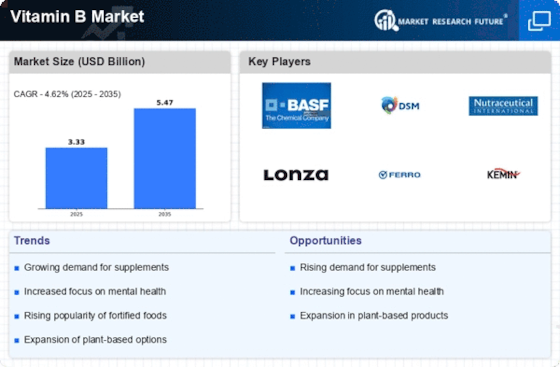

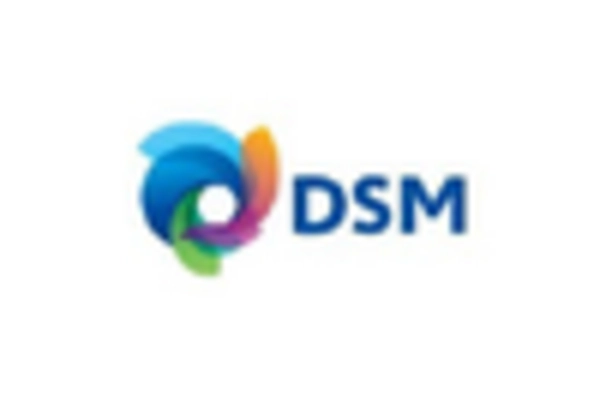
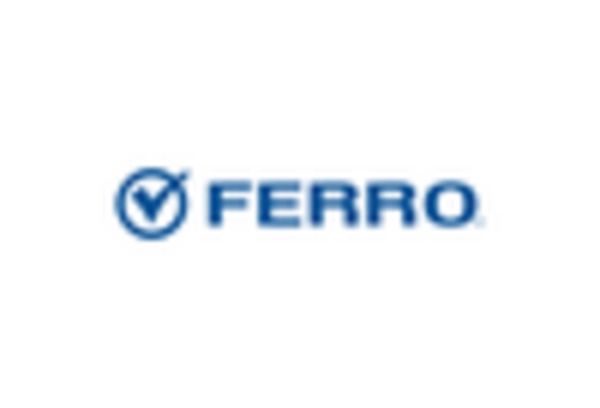
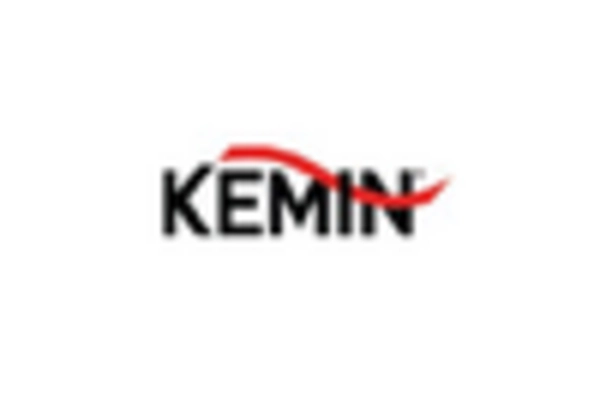
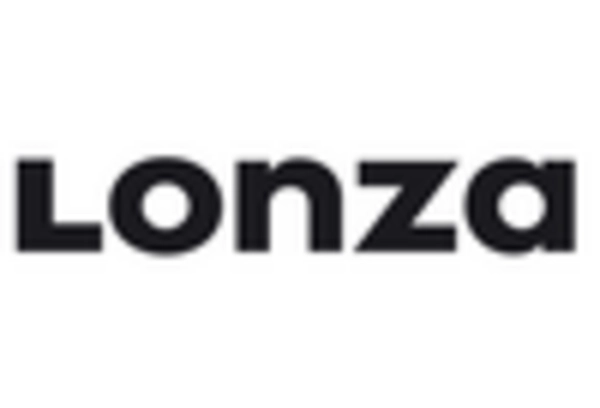
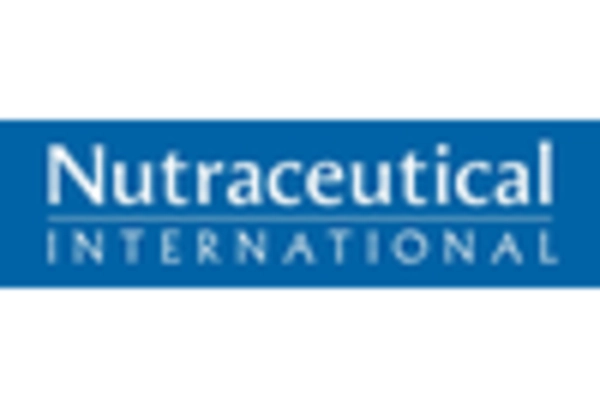









Leave a Comment